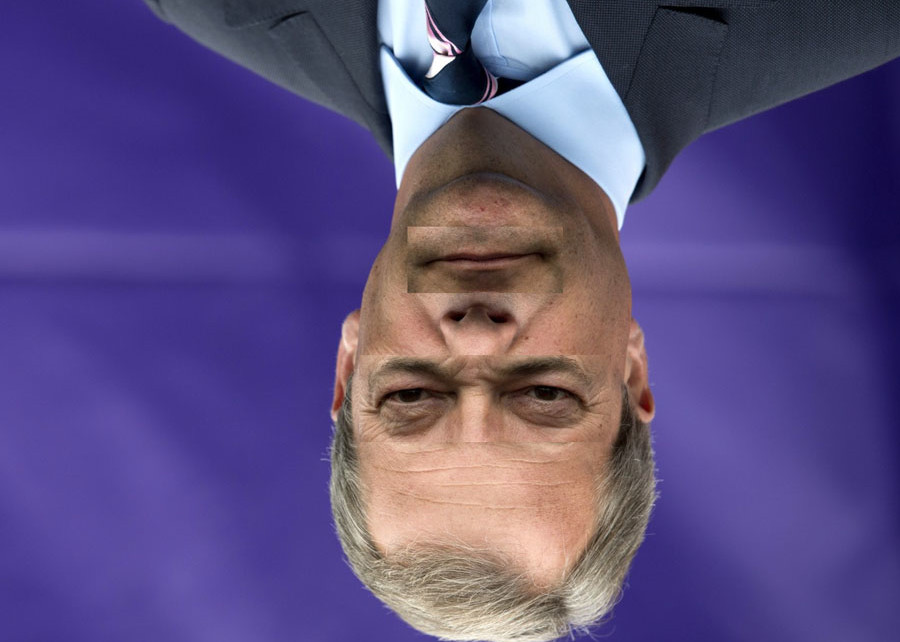In ‘The Sublime Object of Ideology’ (1989) Zizek explores the gap between image and gaze in psychoanalytic theory; image being how we see ourselves to be likeable, and gaze from where. However, he first deals with an interesting paradox in the preconceived notion of how this process of identifying with image works. Our first thought regarding an identification to image would be role models/ideals/figure heads – an external figure we relate to and admire. The paradox is that the process is not necessarily positive, that
the trait-of-identification can also be a certain failure, weakness, guilt of the other, so that by pointing out the failure we can unwittingly reinforce the identification – Zizek, 1989:117
Highlighting the political implications, Zizek uses the example of Kurt Waldheim’s election as Austrian president in 1986 to illustrate the point. The opposition to Waldheim thought it was his ‘great statesman’ qualities that attracted voters, so they highlighted various omissions in his recent autobiography regarding his military service during World War II. He had attempted to whitewash his proximity to war crimes in Yugoslavia and Greece whilst serving as an intelligence officer in the Wehrmacht. Zizek claims that this actually galvanised support for him, since as a nation Austria’s identity functioned through the denial of it’s Nazi past.
We can see this being played out across Europe today, for instance UKIP’s rise in the UK. Dismissed as a fringe party by many, they received a huge amount of ‘negative’ press in the lead up to the 2014 European elections. The coverage highlighted issues of bigotry and racism and repeatedly portrayed Farage as a gurning idiot with a pint in hand, but to the shock of the ‘liberal media’ it only increased UKIP support, transforming them from lunatic fringe to political force.
This is not simply because the UK is full of bigots and racists, the BNP have never gained this kind of political traction, so I think we need to be more precise here. I would claim the identification that is being made between the voting public and UKIP is the ability to be selectively prejudiced, the phenomena of the ‘present company excepted’. Most of the voting public will know someone from an ethnic minority, someone from an immigrant background, and this personal relation is always an exception to the broader rule, to their abstract (but natural) fear of the other. To support the BNP, for most people, is clearly wrong – they can see how making a division on racial lines is incredibly destructive to the individual and society. However, the UKIP stance allows people to engage their natural fear of ‘the other’ defensively – you’re not being racist, you just don’t want any more immigrants in the country; you’re willing to except all the hard workers that bring valuable skills, it’s just those benefit tourists who don’t speak english the Daily Mail told you about you want to stop.
This is where Farage is the ultimate role-model for selective prejudice. Farage wants to curb immigration, to protect the British identity, yet in his home life he is married to a German and has children who are bi-lingual and probably have some sense of a German, as well as British identity. They are the exception to the rule though, their multiculturalism will not devalue British identity, their language needs will not cause strain on the education system and so on, because… well because it won’t. They are, after all, the ‘present company excepted’. (This dynamic transfers nicely to UKIP’s position on Europe, they want to leave the European Union, with the exception of hanging onto all the benefits to trade and business. Applying the same logic to Farage’s personal life suggests he wants to divorce his wife, but keep her as a mistress – a fantasy that will never work out.)
More could be done to derail the UKIP machine by highlighting the fact that all the ‘common people’ rhetoric is nonsense. As a party UKIP relate to a vision of the working class that only exists in the ‘ruling class’ – where honest folk work hard for their crust, provide for their family and enjoy the simple pleasure of a good ale, a far cry from the tangled mess of Whitehall & Brussels. Such a perspective can only be held from the ‘tangled mess’. As an organisation they are completely symptomatic of the ‘problems’ they claim to be the solution to. Many of them, Farage included, are effectively failed members of the ‘political elites’ who have discovered a loop hole and have willfully exploited it for several years. The idea that they represent any kind of change, any break from the current system is laughable.
However, all this means there may be hope for the Green Party. Recent reports into the ethnic diversity of candidates across all parties (link) showed the Greens to have the lowest with BME backgrounds. This could resonate strongly with millions of middle class liberal centralists who don’t consider themselves racist, but have no friends from an ethnic minority.
